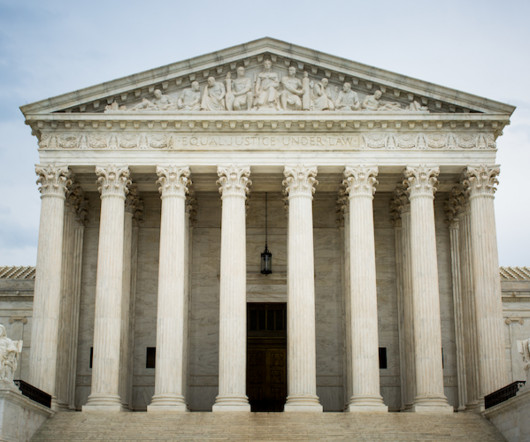Supreme Court Rules Federal Agencies Can Be Sued Under Fair Credit Reporting Act
Constitutional Law Reporter
FEBRUARY 28, 2024
Given that the United States, as a sovereign, is generally immune from suits seeking money damages unless Congress chooses to waive that immunity, the Court’s “clear statement” rule allows a suit against the government only when “the language of the statute” is “unmistakably clear” in allowing it. government.













Let's personalize your content